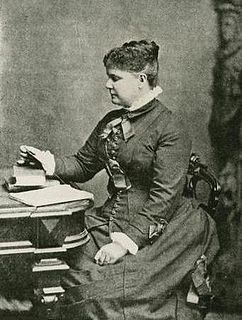A Quote by Lucy Maud Montgomery
Who would endure life if it were not for the hope of death?
Related Quotes
...we are not without hope of salvation, nor is it at all the right time for us to despair. All our life is a season of repentance, for God 'desires not the death of the sinner', as it is written, 'but that the wicked turn from his way and live' (cf. Ez. 33:11 LXX). For, if there were no hope of turning back, why would death not have followed immediately on disobedience, and why would we not be deprived of life as soon as we sin? For where there is hope of turning back, there is no room for despair.
So to be sick unto death is, not to be able to die-yet not as though there were hope of life; no, the hopelessness in this case is that even the last hope, death, is not available. When death is the greatest danger, one hopes for life; but when one becomes acquainted with an even more dreadful danger, one hopes for death. So when the danger is so great that death has become one's hope, despair is the disconsolateness of not being able to die.
Let people who do not know what to do with themselves in this life, but fritter away their time reading magazines and watching television, hope for eternal life... The life I want is a life I could not endure in eternity. It is a life of love and intensity, suffering and creation, that makes life worthwhile and death welcome. There is no other life I should prefer. Neither should I like not to die.
And then the spirit brings hope, hope in the strictest Christian sense, hope which is hoping against hope. For an immediate hope exists in every person; it may be more powerfully alive in one person than in another; but in death every hope of this kind dies and turns into hopelessness. Into this night of hopelessness (it is death that we are describing) comes the life-giving spirit and brings hope, the hope of eternity. It is against hope, for there was no longer any hope for that merely natural hope; this hope is therefore a hope contrary to hope.
If I had my life over again I should form the habit of nightly composing myself to thoughts of death. I would practise, as it were, the remembrance of death. There is no other practice which so intensifies life. Death, when it approaches, ought not to take one by surprise. It should be part of the full expectancy of life. Without an ever-present sense of death life is insipid.
What if it is for life's sake that we must die? In truth we are not individuals; and it is because we think ourselves such that death seems unforgivable. We are temporary organs of the race, cells in the body of life; we die and drop away that life may remain young and strong. If we were to live forever, growth would be stifled, and youth would find no room on earth. Death, like style, is the removal of rubbish, the circumcision of the superfluous. In the midst of death life renews itself immortally.
It was the essence of life to disbelieve in death for one's self, to act as if life would continue forever. And life had to act also as if little issues were big ones. To take a realistic attitude toward life and death meant that one lapsed into unreality. Into insanity. It was ironic that the only way to keep one's sanity was to ignore that one was in an insane world or to act as if the world were sane.
Hope has a thick skin and will endure many a blow; it will put on patience as a vestment and will endure all things (if they be of the right kind) for the joy that is set before it. Hence patience is called patience of hope,' because it is hope that makes the soul exercise long-suffering under the cross until the time comes to enjoy the crown!
This is the fear: death will come and we have not lived yet. We are just preparing to live. Nothing is ready; life has not happened. We have not known the ecstasy which life is; we have not known the bliss life is; we have not known anything. We have just been breathing in and out. We have been just existing. Life has been just a hope and death is coming near. And if life has not yet happened and death happens before it, of course, obviously, we will be afraid because we would not like to die.
If it will be an intolerable thing to suffer the heat of fire for a year or a day, or an hour, what will it be to suffer ten thousand times more for ever? What if thou wert to suffer Lawrence 's death, to be roasted upon a gridiron; or to be scraped or pricked to death as other martyrs were; or if thou wert to feed upon toads for a year together? If thou couldst not endure such things as these, how wilt thou endure the eternal flames ?



































